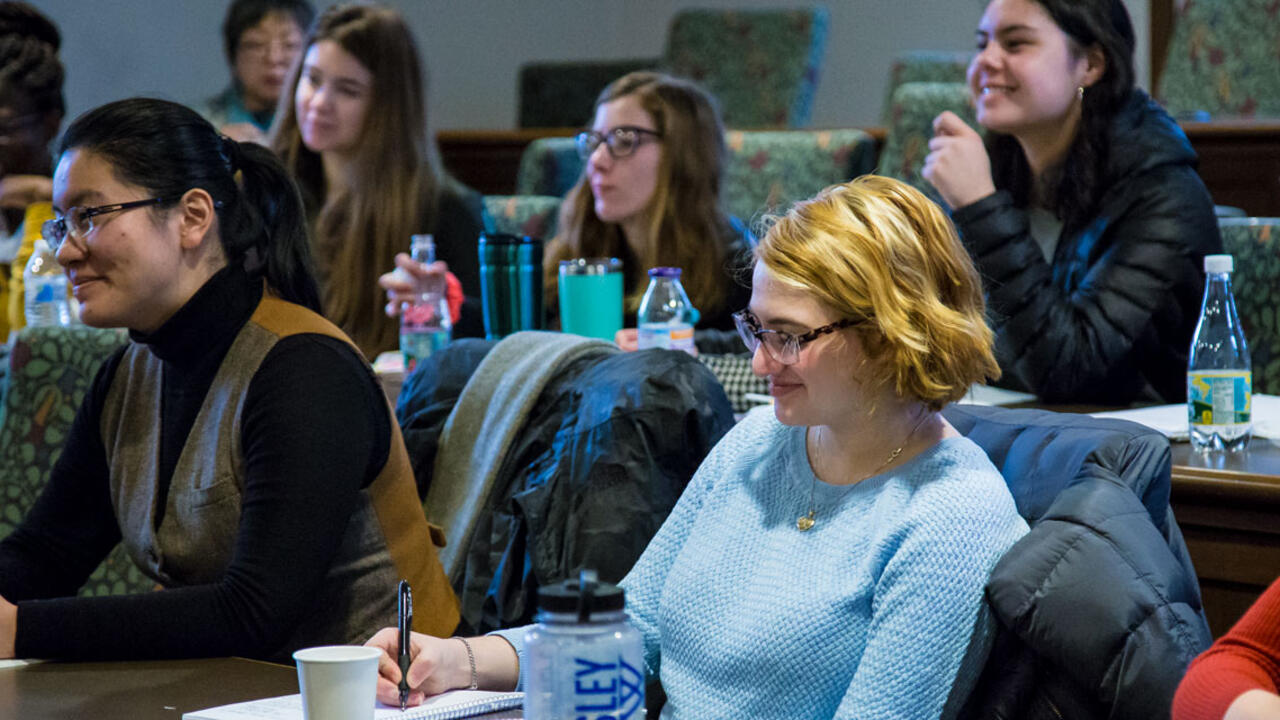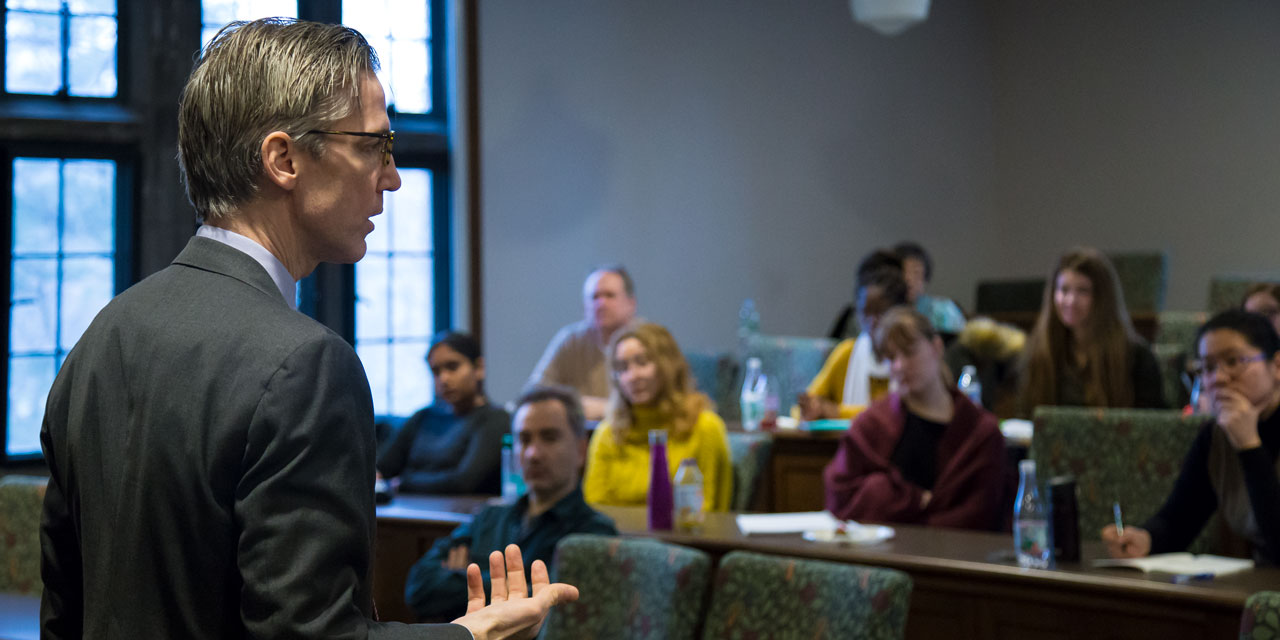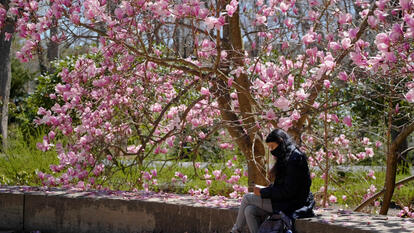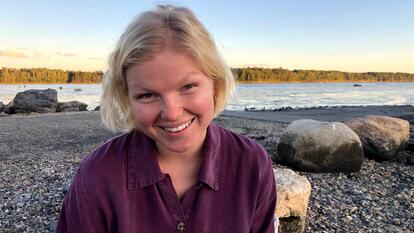Freedom Project Begins Its Sixth Annual Wintersession

Wellesley’s Freedom Project opened its sixth annual Adam Smith Fellowship Wintersession, a four-day event, with a lecture reflecting this year’s topic—Freedom of Speech and Its Limits—at Founders Hall Monday morning.
The 23 Adam Smith Fellows were chosen from across the College in a highly selective process. As fellows, the students will read, research, and write about themes of liberty and freedom, as well as engage in debate and dialogue around ideas of freedom. Throughout the academic year, they will attend lectures by visiting speakers and will also take on a research project.
Catherine Woodhouse ’18, of Dallas, said she was drawn to the fellowship because of its format. “It is here that I truly feel I am a part of a forum that discusses differing opinions,” said Woodhouse, an international relations - political science major. “And at the end of the day, everyone leaves with something gained, whether that be contributing their voice to a debate, hearing an interesting point of view, or simply participating in a well-run, engaging discussion.”
Shreya Parjan ’21, of Hillsboro, Ore., said the Freedom Project and its programs like the Adam Smith Fellowship attracted her to Wellesley. “It highlights Wellesley’s dedication to a liberal arts education that encourages students to confront and engage with diverse perspectives in their learning,” said Parjan, who is considering a major in mathematics. The Freedom Project, she said, represents her belief “that education is a force of freedom, perhaps its most fundamental form, because to learn is to take ownership of one’s thinking.”
Thomas Cushman, director of the Freedom Project, called the Wintersession a “festival of pluralism and intellectual ideas.”
Monday’s opening speaker was Thomas Healy (pictured below), professor of law at Seton Hall University, who discussed themes that arise in his book The Great Dissent: How Oliver Wendell Holmes Changed His Mind—and Changed the History of Free Speech in America. Serdar Kaya, a postdoctoral research fellow at the University of Queensland, Australia, spoke next, on the topic of freedom of expression in the Muslim world and the West. Four other speakers are scheduled over the next two days.
Parjan and Woodhouse said they both find the discussion of free speech highly relevant in today’s political and social climate. “The custodians of free speech have always borne the responsibility of weaving the tapestry of collective human identity and perception, rather than leaving each generation the burden of reinventing our past learnings,” said Parjan. “And yes, this is an emotional debate, but to me, that simply reinforces its power and significance to today’s youth.”
Woodhouse said, “Once again, free speech and the engagement of academic debate struggle in today’s climate, and [Healy’s] lecture teaches us the importance of the consequences that comes with this.”




